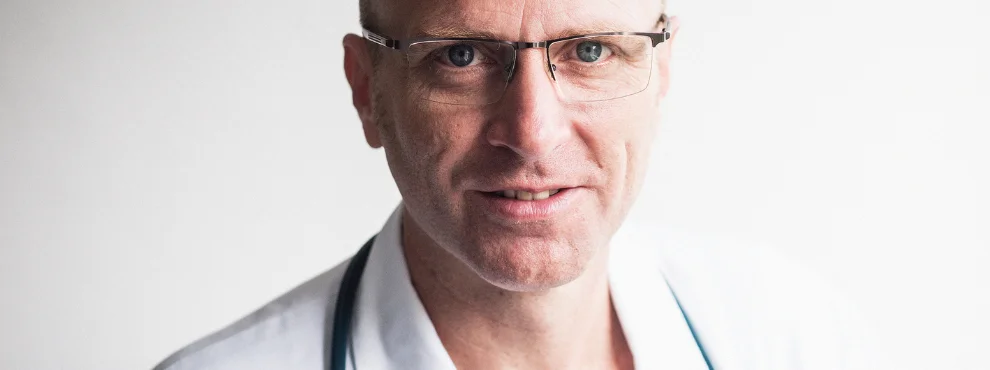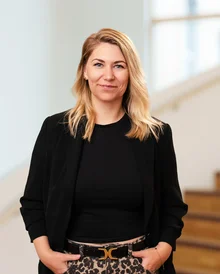Safely resuscitating premature babies and infants - a speciality of Prof. Dr Jost Kaufmann
Witten/Herdecke University has appointed one of two professors in Germany for paediatric anaesthesia.

When premature babies and infants need to be resuscitated or ventilated, emergency doctors and paediatricians face special challenges: Special, smaller instruments are required, the tissue is more sensitive and mistakes can easily be made when dosing medication. Prof. Dr Jost Kaufmann is one of only two professors of paediatric anaesthesia in the whole of Germany to specialise in this field. He works at the Amsterdamer Straße Children's Hospital of the Cologne City Clinics and has now been appointed to the Chair of Paediatric Anaesthesiology at Witten/Herdecke University (UW/H) under Prof. Dr Frank Wappler.
"Most emergency doctors are afraid of being overwhelmed when they have to care for infants or small children," says Prof Kaufmann. In order to learn more about the special physiology, anatomy and therapy, he completed his training as an anaesthetist and emergency physician and also qualified as a specialist in paediatric and adolescent medicine and neonatal emergency physician. "For many, it's pure stress when they have to resuscitate an infant, because they have to calculate the amount of adrenaline needed to get the heart beating again very precisely based on the child's weight. And it's easy to make a mistake," he explains the special nature of this situation. For him, this was the incentive to develop the Paediatric Emergency Ruler (PaedNFL), a medical device that makes calculation errors impossible: it is unfolded like a folding rule, placed on the child with the feet flush at the bottom and where the head comes to rest, the most important dosages for anaesthesia and circulation are directly legible - mental arithmetic under stress is no longer necessary.
Focus on drug safety and endoscopy in children
The PaedNFL was a pragmatic aid for emergency doctors. However, Prof Kaufmann also initiated and coordinated the development of three guidelines on drug safety in children - most recently in 2021 - which present the current state of scientific knowledge to all doctors in Germany and thus significantly influence their treatment decisions. In a study, Prof Kaufmann was able to prove that 80 per cent of life-threatening errors in pre-hospital paediatric emergency medicine can be avoided through the guidelines, training and the PaedNFL. In 2021, he was awarded the "Rudolf Frey Prize" for emergency medicine by the German Society for Anaesthesiology and Intensive Care Medicine.
Paediatric endoscopy is also a key focus of his clinical work and research. In one study, for example, he showed that special instruments are sometimes necessary when ventilating children. If it is difficult to insert a tube into the windpipe for ventilation, the experience gained with adults cannot simply be transferred to children. "The flexible optics with a camera in front, which are considered the gold standard in adults, must be so thin in small children that they are not always good and safe to use. We were able to show that rigid optics can often be used better and faster."
Because the larynx of infants is still particularly sensitive and delicate, injuries often occur during intubation, i.e. the insertion of the air tube into the windpipe. This is the case for up to 20 per cent of premature babies. "If the damage is severe, a tracheotomy would have to be performed. We were able to show that by injecting cortisone into the larynx, it heals without scarring in 80 per cent of cases and the tracheotomy can thus be avoided."
Photos for download
Contact person

Svenja Malessa
Press Officer
Administration | Communication & Marketing
Alfred-Herrhausen-Straße 48
58455 Witten
Room number: 2.F05
